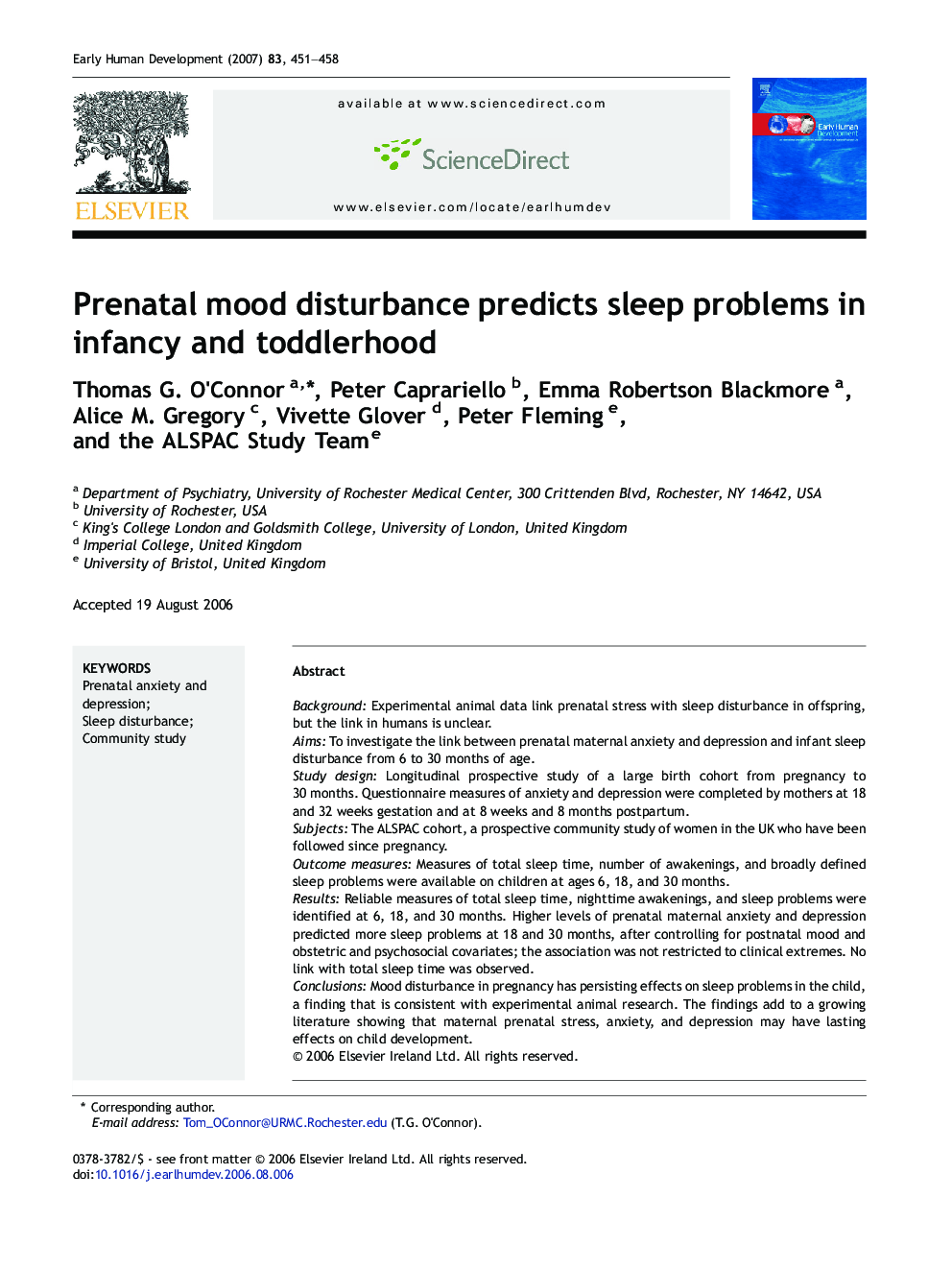| Article ID | Journal | Published Year | Pages | File Type |
|---|---|---|---|---|
| 3918318 | Early Human Development | 2007 | 8 Pages |
BackgroundExperimental animal data link prenatal stress with sleep disturbance in offspring, but the link in humans is unclear.AimsTo investigate the link between prenatal maternal anxiety and depression and infant sleep disturbance from 6 to 30 months of age.Study designLongitudinal prospective study of a large birth cohort from pregnancy to 30 months. Questionnaire measures of anxiety and depression were completed by mothers at 18 and 32 weeks gestation and at 8 weeks and 8 months postpartum.SubjectsThe ALSPAC cohort, a prospective community study of women in the UK who have been followed since pregnancy.Outcome measuresMeasures of total sleep time, number of awakenings, and broadly defined sleep problems were available on children at ages 6, 18, and 30 months.ResultsReliable measures of total sleep time, nighttime awakenings, and sleep problems were identified at 6, 18, and 30 months. Higher levels of prenatal maternal anxiety and depression predicted more sleep problems at 18 and 30 months, after controlling for postnatal mood and obstetric and psychosocial covariates; the association was not restricted to clinical extremes. No link with total sleep time was observed.ConclusionsMood disturbance in pregnancy has persisting effects on sleep problems in the child, a finding that is consistent with experimental animal research. The findings add to a growing literature showing that maternal prenatal stress, anxiety, and depression may have lasting effects on child development.
